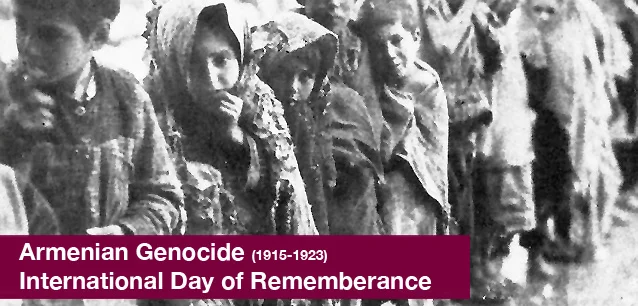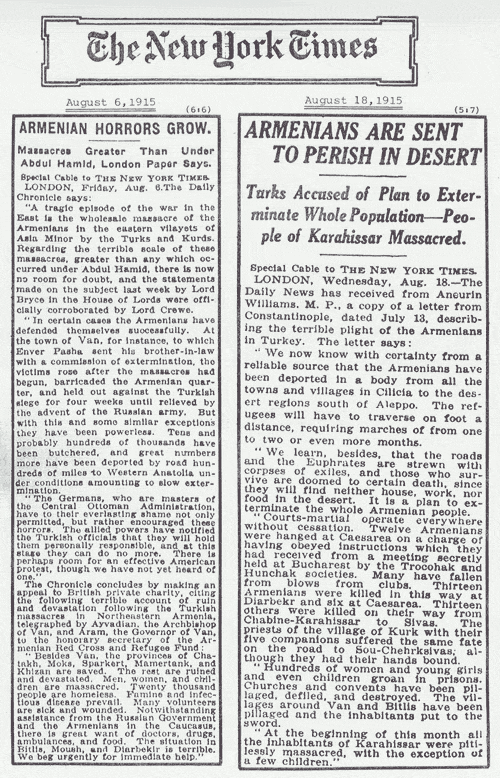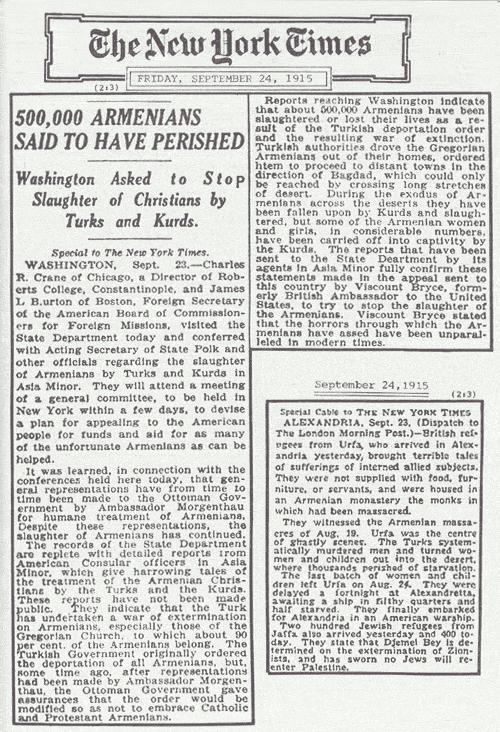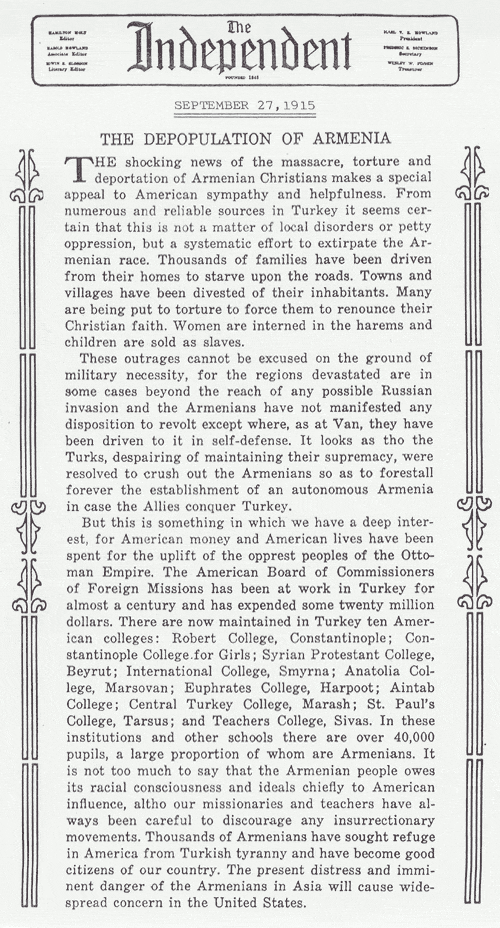 AD
AD
Today is: November 24
Scroll to explore events active on this date.
Additional Events on LEEP
LEEP INK FEATURES

Nuanced November 2024
November is the start of the holiday season in many parts of the world. It is a time for family, football, food, shopping and decorating, particularly in the Christian and Jewish world, leading to Christmas and...

December's Gift
Events in December 2024. Well, we made it to December. December is the holiday season, particularly in Western nations, where Christianity and Judaism are the faiths most common in the nation's past. ...

August is Appropos
A toddler playing in the fountain at a park in Santa Fe, New Mexico—Photo LD Lewis. In August, we live through the Dog Days of Summer. It's hot and often humid, and those ...
About International Remembrance Day for the Victims of the Armenian Genocide
Civil Rights , Politics
Eastern Europe
Ends: Apr 24, 2024
DESCRIPTION:
Most Americans think the holocaust in Germany during the 1930s and 1940s was the first of its kind, believing then was the first time concentration camps were used, mass gassings and cattle cars to transport victims, and it was the first time people were targeted for extermination due to their faith and race.
They would be wrong.
It happened before. Christians in Armenia suffered a similar fate under the Ottoman Empire 25 years earlier.
The Armenian genocide was the precursor, the practice run. It is where many of the future Nazi leaders would get their ideas during WWI. It is believed had the world known about the horrors of what happened to the Armenians, the holocaust may have been avoided. Adolf Hitler stated such, intimating that no one remembered the Armenians; why would they remember the Jews?
On April 24, 1915, hundreds of Armenian intellectuals (poets, musicians, publicists, editors, lawyers, doctors, and deputies) were arrested in Constantinople under warrants issued by the government of Young Turks. Exiled, they were then slaughtered. The annihilation of the Armenian intellectuals was part of a systematic plan to exterminate the Armenian people in their homeland, at first under cover of WWI. It was the first state-planned genocide of the 20th century, but not the last.
Between 1915 and 1923, the Armenian genocide was conceived and carried out, resulting in the deportation of nearly 2,000,000 Armenians, of whom 1,500,000 men, women, and children were killed, and 500,000 survivors were expelled from their homes and the lands they'd inhabited for well over 2,500 years.
To this day, the Turkish government continues to deny the genocide, despite the fact it was the Ottoman Empire and the Kemalists, not the current government of Turkey, that was responsible. It has been a source of political impasse.
Very little has been written about this. The best account is in Robert Fisk's "The Great War for Civilisation." Also, in the corridor connecting the Jewish quarter of Jerusalem with the Christian quarter, the survivors have created a postered event timeline for visitors to read and learn from. Many of the shops and stores in the Christian quarter of the old city are owned by Armenian Christians, and the bishops of the local church are quite helpful in answering questions and providing context.
A film on Netflix outlines what happened during 1916-1918 called "Ararat." It's highly recommended and will provide a context to this horrific event.
It may finally get its due. In March 2014, during an interview with PanARMENIAN.Net, Oscar-winning director of "Schindler's List," Steven Spielberg, noted that he's been collecting information on the Armenian genocide, as well as others that occurred last century, including Rwanda and Cambodia.
Read the full Senate Resolution for more details on this event:
http://thomas.loc.gov/cgi-bin/query/z?c113:S.RES.410:
Learn More at: http://www.genocide-museum.am/eng/remembrance_day.php#sthash.l5c7K4dg.dpuf"
VIDEOS
ADDITIONAL IMAGES
Where would you like to go now?
 AD
AD






/footer-logo.svg)
